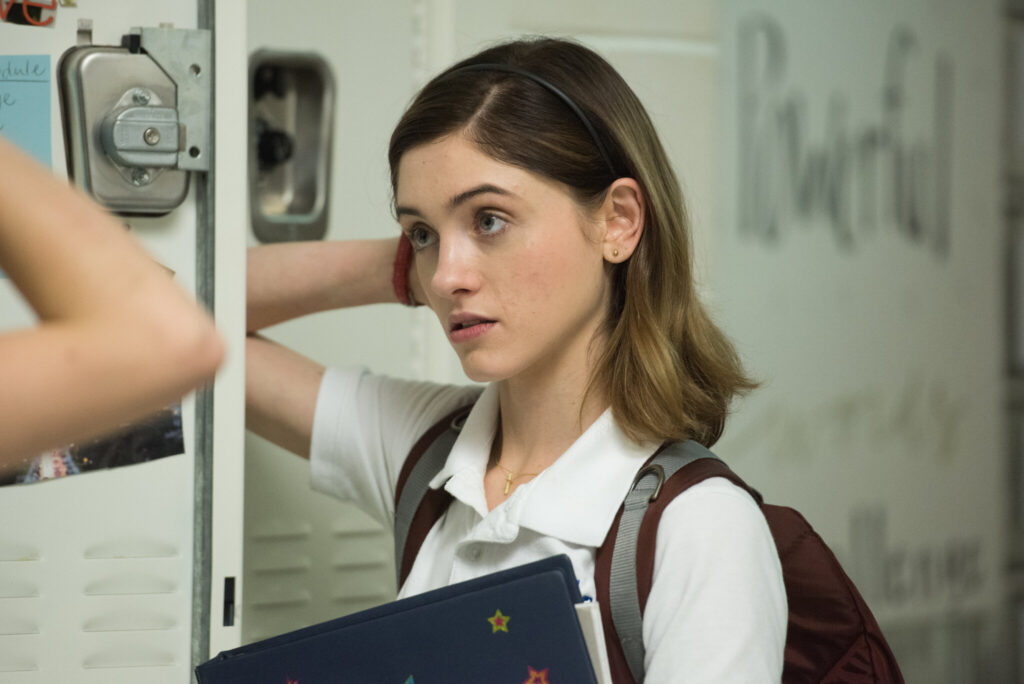“Yes, God, Yes” is a cathartic hour or so for recovering Catholics, filled with gawky and cringeworthy moments to laugh about for those who want to see something that doesn’t seem like it would, but actually gives audiences a surprisingly universal message.
The film is director Karen Maine’s first coming-of-age feature, focusing on the guilt that comes hand-in-hand with an upbringing in the Catholic church, and the perverse view of sexuality that is looked down upon because of it.
Despite the specific experience it speaks to—the turmoil of suburban Catholicism in girlhood—“Yes, God, Yes” makes its mark in affirming that no one knows what is going on and how, because of this, it’s vital to embrace yourself and to not live in shame…even amidst priests and god fearing suburbia with their insistence on doing the exact opposite. Make it up as you go along and embrace it, even when it’s as awkward as the way Alice, the film’s protagonist played by Natalia Dyer, experiences it.
The film’s concept comes from Maine’s 2017 short film of the same name, and in its feature form gives the subject and its lively characters room to breathe in a concept that is actually quite simple. It is quiet, and the plot and directorial style gives the narrative the same energy. The awkwardness and realness of character and delivery (expect nothing less from Maine, co-writer on both the short and full-length “Obvious Child”) speaks truth to what this specific type of guilt is…one that comes from a hard sell that bodies are something to be ashamed of, and carrying that shame until you realise the bubble you grew up in isn’t all there is, and just because something is said doesn’t make it without a doubt true.
The naïve, well-meaning, but ultimately harmful figures of trust surrounding Alice create layers of shame around her that she spends the film’s run-time time slowly tearing her way out of. The film is filled with relatable and laughably awkward moments as she finds her path to the end.

There’s no over-the-top ending where Alice condemns those who taught her wrong—instead, Maine gives us a peaceful internal resolution. One that, once again, rings to total truth and a resolution that everyone, in one form or another, has to come to in accepting themselves despite what others have to say.
Each character is given a solid attempt at being as three dimensional as they have to be to give this resolution. We see ridiculous lines delivered with sincerity, no matter how ‘out there’ they may be, from characters anchored in their self-righteousness and self-assurance only to be flipped on their head by scenes our protagonist carries us along to witness (see: “We pretended each marshmallow was a different mortal sin before burning it. Yours was lust.”). Everyone is fanatically religious, and Maine’s direction of Dyer—whose facial expressions deserve a headline for themselves—shows the kind of freedom ripping the mask off of hypocrisy gives.
“Yes, God, Yes” is dorky, it’s funny, and when put in the hands of a great writer/director and a strong, comedic leading actress who makes the acting on screen as strong as the writing itself, it is a very enjoyable watch.


